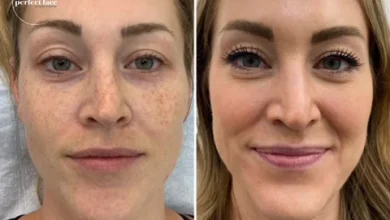Understanding Acne Scars: A Comprehensive Guide

One of the most frequent skin conditions, acne scars, may cause anguish for many people. The first step in providing successful therapy is to have an understanding of them. The purpose of this all-encompassing guide is to shed light on the nature of acne scars, their causes, and their influence on people. Additionally, it investigates potential alternatives to therapy as well as preventative measures. Whether you are someone who is currently struggling with acne scars or someone who is looking to have a better understanding of them, this book offers helpful information. It is important to remember that information is power; in this particular instance, it is the power to restore the elegance and health of your skin.
Acne scars are what exactly?
The permanent textural changes on the skin due to severe acne are called acne scars. They are the consequence of blemishes that have become inflammatory, produced by pores on the skin clogged with bacteria, dead skin cells, and excess oil. The swelling of the pore results in a crack in the wall of the follicle, ultimately leading to scarring. As part of the consultation process for acne scars, physicians categorize them into three distinct varieties: ice pick, boxcar, and rolling. Each of these types has its own set of features. Understanding these kinds is key for efficient medical care so control by a dermatologist about acne scars is a critical step toward better skin care.
Acne scars and their causes
Scars from acne are often the result of pimples that have become inflamed. Bacteria, dead skin cells, and excess oil accumulated in the skin’s pores are the root cause of these. The swelling of the pore, caused by the inflammation in the skin, ultimately results in a breach in the wall of the follicle. In most cases, the damage is not severe if the rupture occurs close to the skin’s surface. Nevertheless, there is a significant breach in the wall of the pore. In that case, the infected material may leak out into the tissue around it, resulting in deeper lesions that ultimately lead to scarring.
Acne scars have an impact.
Scars left behind by acne may significantly influence a person’s life. The smoothness and texture of the skin are altered due to their presence. The repercussions, however, extend beyond the physical realm. The scars may cause a person to feel self-conscious and lower their self-esteem, which is especially problematic in a society where social media often establishes beauty standards. They may negatively impact the relationships and even result in social isolation. Stress, worry, and despair are among the emotions that may be brought on by the psychological effect, which can be severe. Not only is it required to treat these scars for aesthetic reasons, but regular acne scar consultation is also necessary for the individual’s emotional well-being. Acne scar prevention and treatment
Proper acne care is the first step in preventing acne scars. Acne treatment at an early stage is essential to avoid scarring. Products available without a prescription, including salicylic acid or benzoyl peroxide, may help control minor acne. A dermatologist could suggest going to the doctor for prescription medicine in more serious situations. Alterations to one’s lifestyle, including consuming a balanced diet, engaging in regular physical activity, and following a decent skincare regimen, may also help prevent acne outbreaks. Refraining from picking or squeezing pimples is important since doing so may cause irritation and sometimes even scars. Always remember that prevention is always preferable to treatment.
Strategies for Treating Scars Caused by Acne
If you have acne scars, you have a number of treatment choices to choose from, and the one that is most appropriate for you will often be determined by the kind and degree of the scars. Various correction methods are available, including laser therapy, surgical procedures, and topical lotions. A trusted clinic may provide personalized treatment programs. These treatment plans may involve chemical peels, microdermabrasion, or injectable fillers for certain scars. It may be necessary to undergo treatments such as laser resurfacing or punch excisions for scars that are more severe. It is essential to consult with a trained specialist at an Acne Clinic to ascertain the therapy that will be most successful for your particular circumstance.
Seeking the advice of a dermatologist
For effective management of acne scars, consulting a dermatologist is crucial. Dermatologists are skin experts who can accurately assess the type of vulgar scars and provide the most effective treatment options. They will examine your skin, discuss your medical history, and address any concerns you may have during the consultation. They can offer expert advice tailored to your specific needs and skin type. Remember, everyone’s skin is unique, and what works for one person may not work for another. Personalized guidance from a dermatologist can be invaluable in achieving clear skin.
Final Thoughts
Getting a better understanding of acne scars is the first step in regaining the health and attractiveness of your skin via skin defects treatment. Managing this skin problem involves several aspects, each of which plays an important role, including their creation, effect, prevention, and therapy. It is important to remember that every individual’s skin is different, and the products that are effective for one person could not be effective for another. Due to this, receiving individualized guidance from a dermatologist or an acne clinic is beneficial. With the appropriate information and the assistance of a trained expert, you can traverse the path from acne scars to skin healing with self-assurance and hope. Cheers to your progress toward having skin that is clean and healthy!





